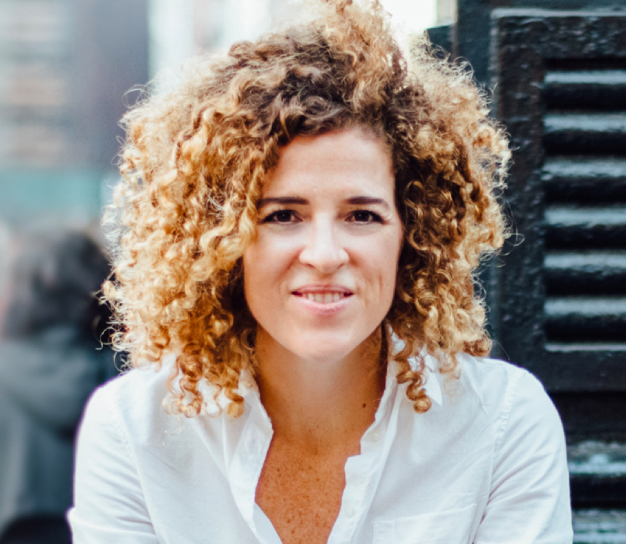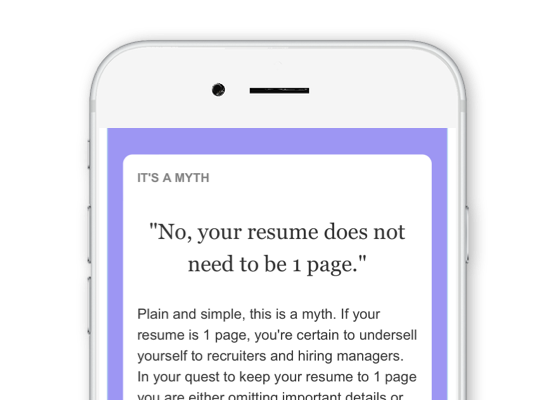11 min read
Should you choose a UX design specialization or remain a UX generalist?
8 min read
8 min read

At some point in your UX career, you’ll likely feel pressured to decide if you want to be a UX generalist or a UX specialist. How do you know what’s right for you? When is the best time to decide? The world needs both UX generalists and specialists. Ultimately, it depends on what you want. What are you skilled at? What do you enjoy doing? What types of companies and team structures do you thrive in?
Your answers to these questions will help you decide if and when you should consider focusing on a specific part of UX.
“Should I be a UX specialist or a generalist?”
It’s a debate as old as UX, and I have an opinion. My take: You should be a generalist for at least the first two years of your career, and only then consider a specialization. By approaching your UX career with a generalist-first strategy, you will equip yourself with foundational skills that will make you more valuable as a team player, as you’ll be able to fulfill the ever-changing needs and gaps of the company and team.
My generalist background has been very valuable to my UX career. For example, how did I survive a round of layoffs when I startup I was at when from 80 employees to about 15? I believe it was my generalist background—because the company’s leadership knew I had flexible skills that could meet the ever-changing needs of the company.
Who didn’t make the cut? A lot of very niche roles that were important to the company at a certain chapter in its existence, but weren’t needed when the company’s direction changed.
Let’s discuss:
- The advantages of being a UX generalist
- What needs to be in a UX generalist’s toolbox
- How to market yourself as a generalist
Generalists make good specialists, but it doesn’t work both ways
I’m not alone in this thinking—nor is it a new trend within UX. In 2015, UX expert Jared Spool tweeted that UX professionals should stop trying to decide if they should be a UX specialist or generalist.
Instead, we should be asking when we should be choosing to pick a specialty—because every designer should start as a generalist. Instead, he said that UX professionals should be generalists first and then later on in their career, consider if specialization makes sense for them.
“Should I be a generalist or a specialist?” is the wrong question.
The right question is “Should I specialize after I become a generalist?”
— Jared Spool (@jmspool) March 6, 2015
In other industries, you learn the general foundations before you specialize. For example, a psychiatrist, cardiologist, and trauma surgeon all have to complete the same four-year medical program before they choose a specialty to pursue. Lawyers choose their specialties at the end of their degrees; even undergraduate students often have to finish a series of general studies courses before they can declare their major. UX should not be any different.
Building upon his pro-generalist argument, Spool put together a list of the seven skills every UX practitioner needs to master based on sixteen years of research.
The seven primary skills that build the UX generalist foundation
To become a well-rounded UX professional, these are the principles that you need to master—not the software. Software will change, but design principles will not.
In the case of visual design, for example, principles such as alignment, grids, spacing, contrast, repetition, hierarchy, balance, typography, and layouts, can’t be automated in a tool—you have to know how to execute on them. If you’re fluent in the software du jour but don’t know the basics, then you’re not a generalist: you’re a pixel-pusher.
These are the seven primary skills that Jared outlines based on his team’s research:
- Interaction design
- Information architecture
- User research
- Visual design
- Information design
- Fast iteration management
- Copywriting and editing
In addition to these skills, their research revealed value in developing what he refers to as enterprise skills, some of which are:
- Analytics
- Development methods
- Design-to-development documentation
- Ethnography
- Social networks
- Marketing
- Technology
- Business knowledge
- Domain knowledge
Spool wrote:
“On the best teams, every team member has a solid foundation in all of these skills. That’s important because it gives the team flexibility. No matter who is available, no matter what needs to get done, a competent and informed job is possible…In my opinion, we’ll see less emphasis on individual specialist job titles going forward. We’re already seeing that in the job postings that have come out in the last year. They tend to be looking for more generalist individuals with a well-rounded, rich set of skills. Many teams can’t afford to have members who are missing the core skills, even if the skills they have are rich unto themselves.”
Develop general UX skills first. Specialize later.
Specialization, however, doesn’t have to be defined just based on what you know how to do. Consider that specialization could mean developing expertise in a specific industry, such as financial services or health care.
At the beginning of my career, for example, I never would have predicted that I’d give up doing visual design in favor of focusing on education. However, as one project led to another, each experience gave me more insight into what I was good at and what interested me, and eventually, I found my path…for now. I wouldn’t be surprised if my trajectory looks different in another five years—but my generalist skills will always be my starting point.
Being a UX generalist can be your superpower
Yes, this is your career. But you need to think of yourself as a product. Your position within a team is to solve problems—to fulfill a need. The team is hiring you to solve a problem, to fill a need they have.
How do you make yourself marketable? The more problems you can solve, the more value you can bring to the team. In other words, the more hard and soft skills you have, the greater your contributions can be.
When you focus on being a UX generalist first, the breadth of your experience makes you more hireable—because creating a great product is not just about making wireframes, doing research, producing a product roadmap, creating the visual design, and writing great copy. A great product is created when all of these activities work concurrently and inform each other.
For example, if you’re a visual designer, it can be helpful to be technically literate so that you have a baseline knowledge of how your design may get coded.
How being a UX generalized helped me in my UX career and can help you too
Reflecting on my career path, I was a generalist first and I’d say I still am. I have knowledge and experience in interaction design, information architecture, visual design, user research, copywriting, and development. However, there was a point around 2010 when I decided that I wanted to focus more on specific areas. I decided to stop focusing on visual interface design because I felt like I knew enough—and I knew I didn’t want to do that full-time.
But I do have a specialty: I would consider myself a specialist in education. I developed the UX curriculum for General Assembly, along with creating bespoke in-person and online courses. However, if one day I decided that I wanted to get out of UX education, I’d have my generalist background to fall back on and I’m confident I’d still be employable.
My generalist skill set has helped me immensely in my career. As the needs of the companies I’ve been at changed, the company didn’t need to hire other people because I was able to adapt my skills to their needs. I was at one startup for about two years and as employee number six, I helped build the product from the ground up. The company had to downsize and luckily, I survived the cut. In hindsight, many of the others who survived the cut were also generalists.
As you start thinking about choosing a UX specialty, remember that being a UX generalist sets you up to have more options down the road. Look for opportunities in your UX career that will provide you with opportunities to do a little bit of everything so you can figure out what you’re naturally talented at, interested in, and want to focus on in the future.
Featured Resource
Get the UX Case Study template for Google Docs and ensure sure your case study covers all the details UX recruiters look for.









